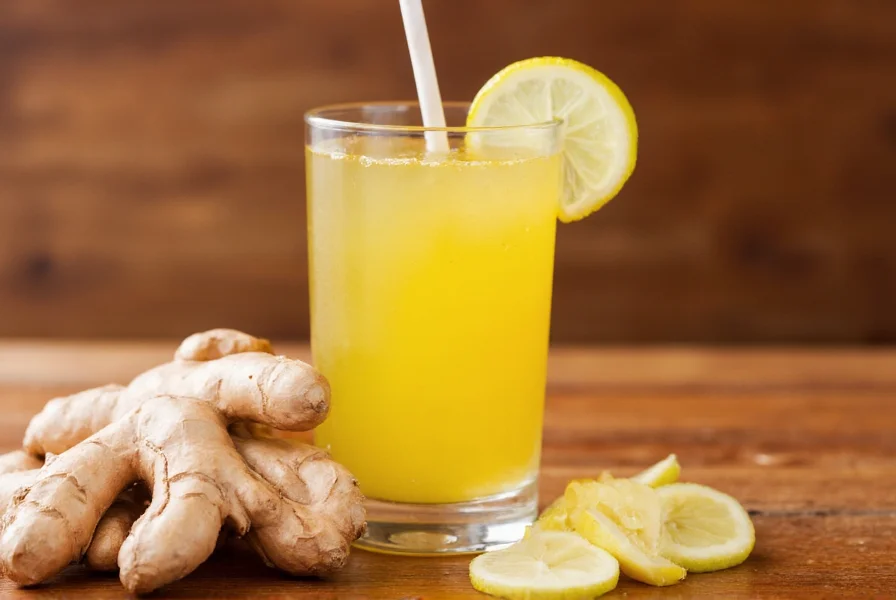Understanding Ginger Root Drink and Its Health Properties
Ginger root drink has been used for centuries across various traditional medicine systems, particularly in Asian and Ayurvedic practices. Modern scientific research continues to validate many of these traditional uses, revealing the complex biochemical properties that make ginger such a valuable natural remedy.
The Science Behind Ginger's Active Compounds
Ginger's therapeutic properties primarily come from gingerols and shogaols, the bioactive compounds responsible for its pungent taste and medicinal effects. When ginger root is processed through drying or heating, gingerols transform into shogaols, which are even more potent antioxidants. These compounds work through multiple physiological pathways to deliver ginger's well-documented health benefits.
| Key Compound | Natural Concentration | Primary Health Effects |
|---|---|---|
| Gingerol | High in fresh ginger | Anti-inflammatory, antioxidant, anti-nausea |
| Shogaol | Higher in dried/processed ginger | Enhanced antioxidant activity, pain relief |
| Zingerone | Moderate in cooked ginger | Digestive support, antimicrobial properties |
Evidence-Based Health Benefits of Ginger Root Drink
Multiple clinical studies have examined the effects of ginger consumption, particularly in beverage form. Unlike many herbal remedies that lack scientific validation, ginger root drink benefits are supported by substantial research evidence across several health domains.
Digestive Health Improvement
Ginger root drink for digestion stands out as one of its most well-documented benefits. Research published in the World Journal of Gastroenterology shows that ginger accelerates gastric emptying by up to 25%, reducing symptoms of indigestion and bloating. The active compounds stimulate digestive enzyme production while relaxing the intestinal tract.
Nausea and Motion Sickness Relief
For those seeking natural remedies, ginger root drink for nausea provides significant relief without the drowsiness associated with pharmaceutical options. A comprehensive review in Integrative Medicine Insights concluded that ginger is effective for pregnancy-related nausea, chemotherapy-induced nausea, and motion sickness, with optimal results when consumed before symptoms begin.
Anti-Inflammatory Effects
Regular consumption of ginger root tea benefits individuals with inflammatory conditions. Studies demonstrate that ginger's compounds inhibit inflammatory pathways similar to non-steroidal anti-inflammatory drugs (NSAIDs), but without the gastrointestinal side effects. This makes homemade ginger root tea recipe options valuable for those managing chronic pain conditions.
How to Prepare Ginger Root Drink: Simple Recipes
Creating effective ginger root beverages requires understanding proper preparation techniques to maximize the bioactive compounds. The method of preparation significantly affects the concentration of beneficial compounds in your final drink.
Basic Fresh Ginger Tea Recipe
This foundational homemade ginger root tea recipe serves as the base for numerous variations:
- Peel and slice 1-2 inches of fresh ginger root
- Add to 2 cups of water and bring to a gentle boil
- Reduce heat and simmer for 10-15 minutes (longer simmering increases shogaol content)
- Strain and add optional ingredients like lemon or honey

Golden Milk Variation
For enhanced anti-inflammatory effects, try this turmeric-ginger combination:
- Combine 1 cup almond milk, 1 inch ginger, ½ inch turmeric
- Add pinch of black pepper and cinnamon
- Heat gently without boiling for 10 minutes
- Strain and enjoy as an evening beverage
Optimal Timing for Ginger Root Drink Consumption
The best time to drink ginger root tea depends on your specific health goals:
- Morning consumption: Ideal for jumpstarting digestion and metabolism
- Before meals: Helps prepare the digestive system, particularly beneficial for those with slow digestion
- Before travel: Most effective for preventing motion sickness when consumed 30-60 minutes prior
- Evening consumption: The golden milk variation promotes relaxation without sedation
Potential Side Effects and Precautions
While ginger root drink side effects are generally mild, certain precautions should be noted. Consuming more than 4 grams of ginger daily may cause heartburn or mouth irritation in sensitive individuals. Those taking blood-thinning medications should consult their healthcare provider before regular consumption, as ginger may enhance anticoagulant effects.
Pregnant women can safely consume ginger root drink during pregnancy for nausea relief, but should limit intake to 1 gram daily during the first trimester and consult their obstetrician. Individuals with gallstone disease should also exercise caution as ginger may increase bile production.
Scientific Research Summary
A 2021 meta-analysis published in Nutrients reviewed 50 clinical trials on ginger consumption, concluding that regular ginger intake significantly improves digestive health markers and reduces inflammation. Another study in the Journal of Pain found that daily ginger supplementation reduced muscle pain by 25% in participants performing intense exercise.
The evidence supporting ginger root drink benefits continues to grow, with researchers particularly interested in its potential applications for metabolic health and immune support. Unlike many trending wellness beverages, ginger root tea benefits are supported by decades of scientific investigation across multiple continents.












 浙公网安备
33010002000092号
浙公网安备
33010002000092号 浙B2-20120091-4
浙B2-20120091-4